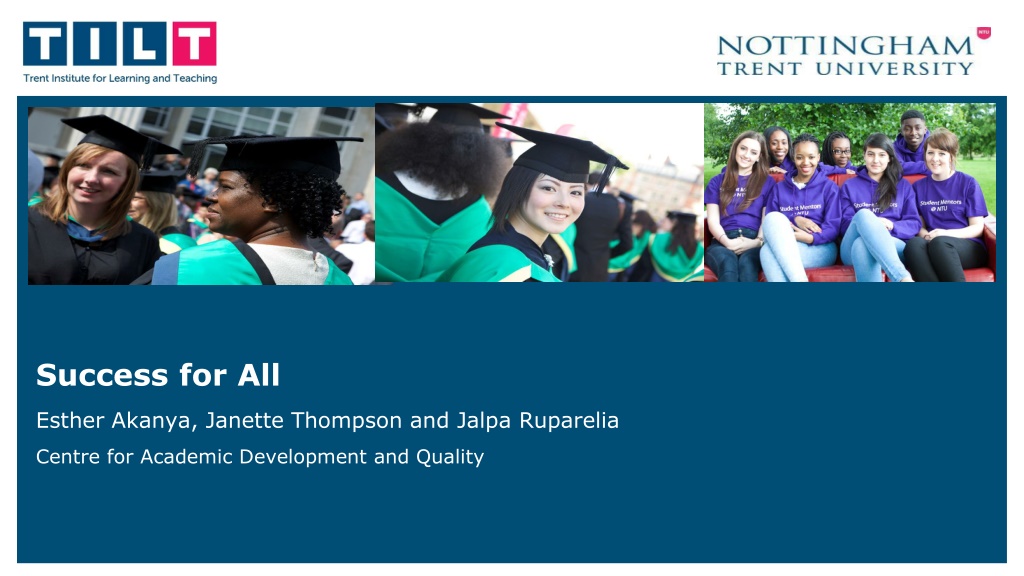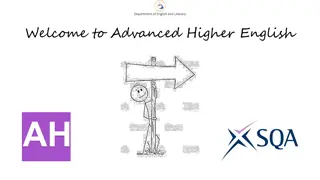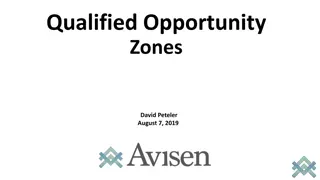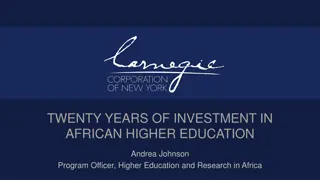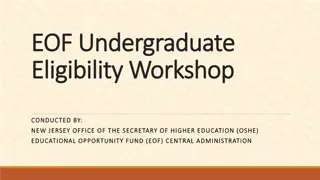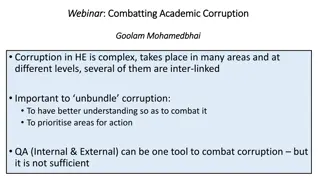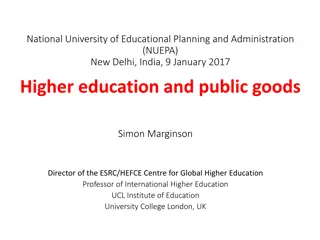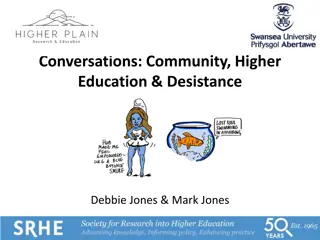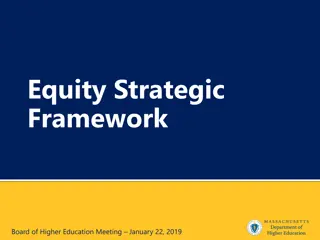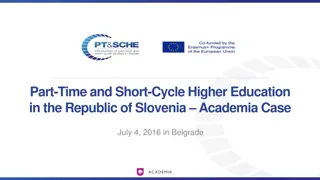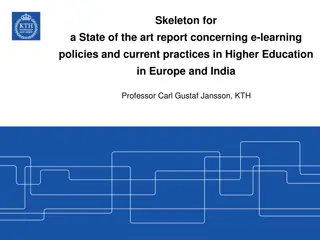Success for All: Creating Opportunity in Higher Education
Focusing on addressing differences in attainment among student groups, Success for All initiative at the Centre for Academic Development and Quality aims to reduce barriers to equal access. Through Curriculum Refresh, the educational development team works to bridge the attainment gap across various schools and disciplines, emphasizing inclusion, diversity, and support for all learners.
Download Presentation

Please find below an Image/Link to download the presentation.
The content on the website is provided AS IS for your information and personal use only. It may not be sold, licensed, or shared on other websites without obtaining consent from the author. Download presentation by click this link. If you encounter any issues during the download, it is possible that the publisher has removed the file from their server.
E N D
Presentation Transcript
Success for All Esther Akanya, Janette Thompson and Jalpa Ruparelia Centre for Academic Development and Quality
We will continue to be a destination of choice for an increasingly diverse group of students and professionals , and continue to address differences in attainment between and obstacles to equal access to opportunities across all student groups (Creating the University of the Future: Creating Opportunity)
The groups that Success for All focus on are: Gender Qualification (BTEC+) Ethnicity Residency Disability Age Widening Participation
Curriculum Refresh Our work as education developers aims to reduce the attainment gap and is embedded in the Success for All element of Curriculum Refresh. Reducing the attainment gap is one element of Curriculum Refresh The educational development team is made up of 8 developers assigned in each of the schools across four sites Social Sciences Science and Technology Arts and Design Nottingham Law Arts and Humanities Animal, Rural and environmental Sciences Nottingham Business School Architecture, Design and the Built Environment
Success for all in the Curriculum Refresh framework Action CO303 We will continue to address differences in attainment between and obstacles to equal access to opportunities across all student groups. S1 Is the course design informed by data on disparities in progression and attainment for the equality and diversity groups, and international, BTEC, and students from disadvantaged backgrounds? Is student engagement reviewed regularly during the course to identify and support at risk students, and to encourage highly engaged students? To build students' social and cultural capital, to what extent does the course include: communication of high expectations for all students; support for students' confidence to achieve these; discussion of expectations of learning in HE; and the steps required to achieve academic success? To what extent does the course design recognise that students learn in different ways (implementing a range of practices such as active learning, ongoing induction, co-curricular activities and pre-arrival and post-arrival strategies)? S2 S3 S4 S5 To what extent is developing students' understanding of assessment practices integrated into course design? To what extent does the course facilitate early social integration to support peer relations through, for example, induction activities, collaborative learning and teaching, opt-out peer mentoring, and staff-organised social events? S6
What we do: Success for All is reliant on the Ed Devs development of ongoing relationships with course teams and academic colleagues We support the development of the student academic experience by working with colleagues to develop inclusive learning, teaching and curricula. We analyse institutional, School and course data on, for example, achievement and progression, using this data to prioritise support and to engage colleagues in curriculum and pedagogic development. We proactively network with stakeholders to engender the effective sharing of knowledge and practice exchange, raising the profile of the Success for All work across NTU.
For Example: Targeted, data-informed strategies to enable greater success in BTEC-entry students success in BTEC-entry students
Inclusive Curriculum Evaluation Tool TESTA-style approach: using data to generate a course- level inclusivity profile. Figures available on disparities in student outcomes across all groups, including BTEC entrants. Facilitates data-informed strategic approaches to student support, assessment design and curriculum development.
Student progression & attainment data BSc(H) Animal Biology FT Percentage progressing from Year 1 to Year 2 Course name Total Percentage of students Total Number of students Number of students Percentage of students Not Progressing Progressing Not Progressing Entry route A-levels only BTEC only Mixture of BTEC and A-levels Other qual types Grand Total Progressing 100.0% 8 0.0% 30.0% 8 100.0% 100.0% 6 14 70.0% 20 1 1 8 11 6 39 8.3% 14.3% 17.0% 91.7% 85.7% 83.0% 12 7 47 100.0% 100.0% 100.0% Gap (A-levels vs BTEC) 30.0%
Inclusive assessment Course name BSc(H) Zoo Biology FT Assessment Type Assignment Coursework Dissertation Examination Log/Journal Grand Total Percentage of overall degree Count of assessment type 33.3% 22.2% 8.9% 33.3% 2.2% 100.0% 6 3 1 6 1 17 Information on the range, load and weighting of assessments can be used to inform strategic approaches to supporting BTEC students.
How to Succeed video at Nottingham Law School Use the Aurasma app to have a look at the finished video. Acknowledging the talents and skills of our BTEC entry students. Working with BTEC students to produce an NLS-specific, peer-to- peer advice video. How to learn most effectively.
Ensuring successful student transition for BTEC entry students in ADBE. Events designed to ease transition, build peer-to-peer relationships and increase sense of belonging. A furniture making spa day. Increased 1:1 tutorials for highly personalised support enhanced by usage of the NTU Data Dashboard to monitor engagement.
Thank you. Further comments or questions.
